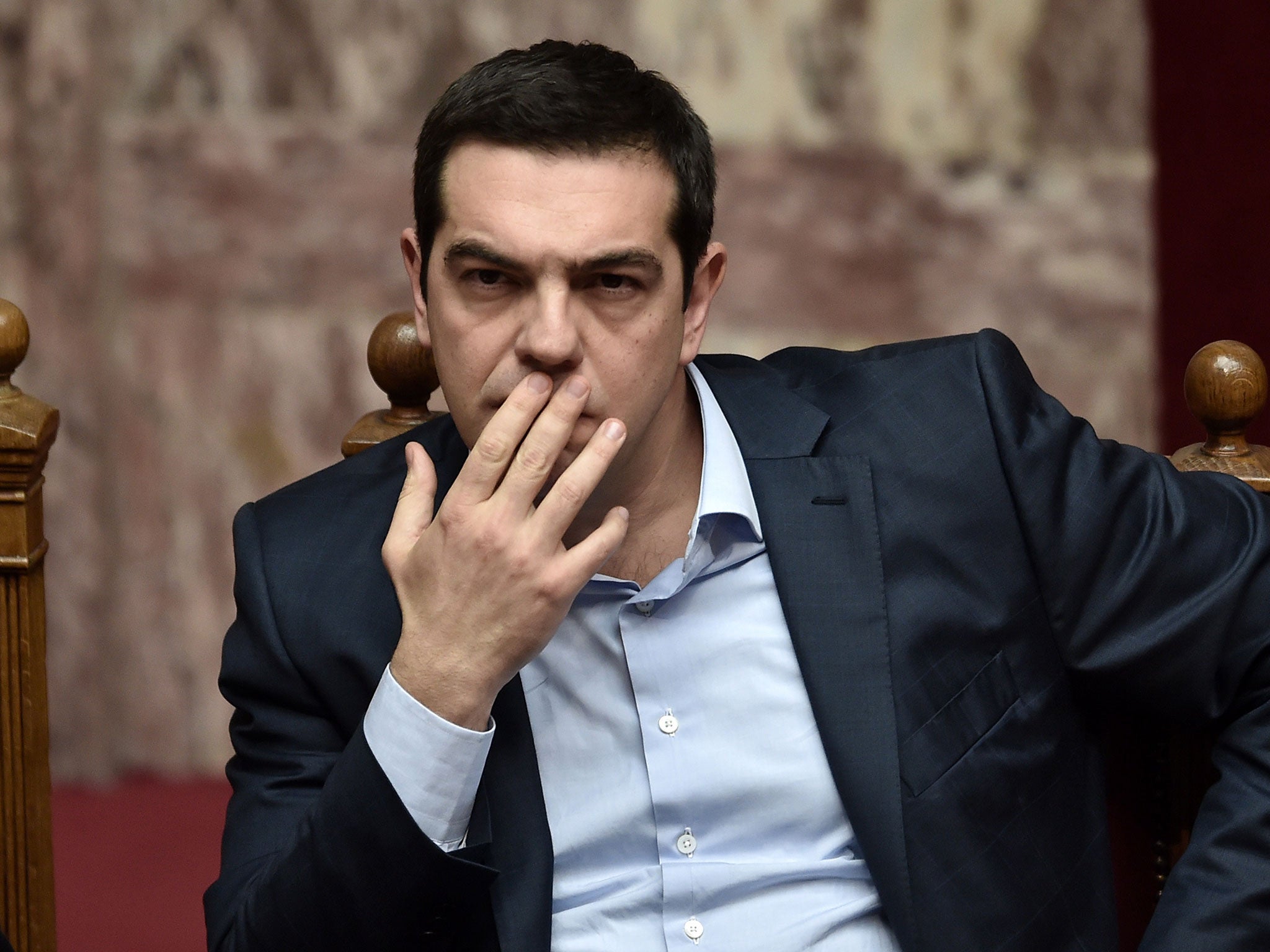Greece debt crisis: If the situation is to be resolved – rather than postponed – some common sense is badly needed
The IMF is guilty of massive blunders and Greece’s eurozone partners of indulging a pernicious doctrine

Your support helps us to tell the story
From reproductive rights to climate change to Big Tech, The Independent is on the ground when the story is developing. Whether it's investigating the financials of Elon Musk's pro-Trump PAC or producing our latest documentary, 'The A Word', which shines a light on the American women fighting for reproductive rights, we know how important it is to parse out the facts from the messaging.
At such a critical moment in US history, we need reporters on the ground. Your donation allows us to keep sending journalists to speak to both sides of the story.
The Independent is trusted by Americans across the entire political spectrum. And unlike many other quality news outlets, we choose not to lock Americans out of our reporting and analysis with paywalls. We believe quality journalism should be available to everyone, paid for by those who can afford it.
Your support makes all the difference.The financial life support that has sustained Greece’s membership of the eurozone is now failing. It has transferred not just money. It has transfused political, social and economic poison into the country’s bloodstream. If the crisis is to be resolved – rather than merely postponed – some common sense is badly needed, about both the minimum action required to enable Greece to recover and about who or what injected the poison.
First, Greece will almost certainly never be able to repay all that it owes to its creditors, unless the government’s reforms produce an astonishing economic transformation. Debt relief, this time on Greece’s obligations to the European Central Bank (ECB) and eurozone governments, is required, even on the most wildly optimistic assessment of its capacity for structural reform and improvements to its leaky tax base. If Greece doesn’t get debt relief, then default beckons.
Second, Greece will probably need to leave the euro if it is to secure lasting economic recovery. Greece needs an external devaluation, not more domestic deflation. A face-saving option, “indefinite” suspension, would amount to much the same.
In any case, other euro-area countries have endured severe hardship in order to service their governments’ debts. It would cause both moral hazard and massive political resentment in other countries if Greece, having not paid its debts, were to be allowed to remain in the euro area with those countries who have repaid.
Third, it is in the interests of Europe as a whole that the Greek economy should not fail – Greece should be able to remain in the European Union, and can be put back on track towards prosperity outside the euro. Greece will need a lot of support to create a new currency, devalue and secure lasting recovery.
So, the ECB and the EU should treat Greece generously with debt relief, the provision of resources for the Greek central bank and further financial transfers. The Greek euro-tragedy was not just of the Greeks’ making. It occurred because serious mistakes have been made by the EU and the International Monetary Fund, among others.
The first mistake was for the EU to admit Greece into the euro in 2001. Greece did not meet the entry criteria. With Goldman Sachs’ help, its government cooked the books. By the time the EU took the trouble to audit them in 2004, it was too late.
The second mistake has been in the strategic management of the crisis since it erupted in 2010: it has offered the least debt relief it could get away with in exchange for the tightest fiscal policy it could impose on Athens.
The consequences have been catastrophic for all parties. The Greek economy has contracted by 26 per cent since 2007 and unemployment has risen to 26 per cent. Debt has grown. The Greek public has been alienated and angered. It was clear, from 2010, that Greece was suffering from massive currency overvaluation. Trapped within the euro, Greece needed a huge internal devaluation – drastic cuts in wages and costs. Many forecast that it would be socially and politically unachievable. And so it has proved.
A third mistake made it very difficult to put right the consequences of the first two. This was the doctrine that the euro area was for ever. Countries could join, but there was no provision for leaving. The absence of any such provision was manifest even prior to the formation of the euro and doctrine got in the way of economic reality.
Greece should not have joined the euro. This has been clear for a long time. But the doctrine of “ever-closer union” enshrined in the EU treaties, combined with the inflexibility of the euro area’s design, led the EU’s leaders to conclude that the most straightforward means of dealing with Greece’s problems – Grexit – would lead to an existential crisis.
The three mistakes were compounded by a fourth, this time made by the IMF – no doubt excessively influenced by some of its euro-area members. The IMF should have provided an independent and sceptical assessment of Greece’s woes. But its routine surveillance of the Greek economy did not enable it to foresee the crisis; and, when it struck, the fund “modified” its own rules to allow the largest access to its resources – €30bn – in its history.

The IMF has allowed itself to be drawn into a partnership with the European Commission and the ECB – the so-called “troika” – which has prevented it from fulfilling its duty to act as an impartial and detached adviser to national governments, and from acknowledging, at the outset, the unsustainability of Greece’s debt burden and the need for write-offs. It compounded this massive blunder with another: wildly over-optimistic forecasts of Greece’s economic performance enabled the justification of demands for austerity. The troika has also demanded deep and, certainly in the short run, unachievable structural reforms.
The EU and eurozone’s handling of the crisis has damaged the reputations of both. Their disastrous performance in dealing with Greece reflects fundamental defects in the euro’s design. Ever-closer union is not just a mantra – it can be a pernicious doctrine. It permits dogma to determine decisions without proper regard to their practical consequences. The euro “outs” have an interest in all of this – countries such as the UK get hit by the consequences of mistakes. The purpose of the “outs” should not be dismantling but reinforcing the eurozone. For which, a dose of reality is essential.
The IMF has been badly damaged by this crisis. It, too, needs to restore its reputation, as a provider of independent advice and support on behalf of its member states. It should now acknowledge its past mistakes, give Greece no further special treatment and provide the Greek government with truly independent advice, assessments and forecasts, even – and especially – when these differ from the views of the EU authorities.
If the IMF does its proper job, if the eurozone drops its dogma, and, with Greece, if all parties exercise some common sense, then an economic, political and reputational recovery are all still available.
Join our commenting forum
Join thought-provoking conversations, follow other Independent readers and see their replies
Comments